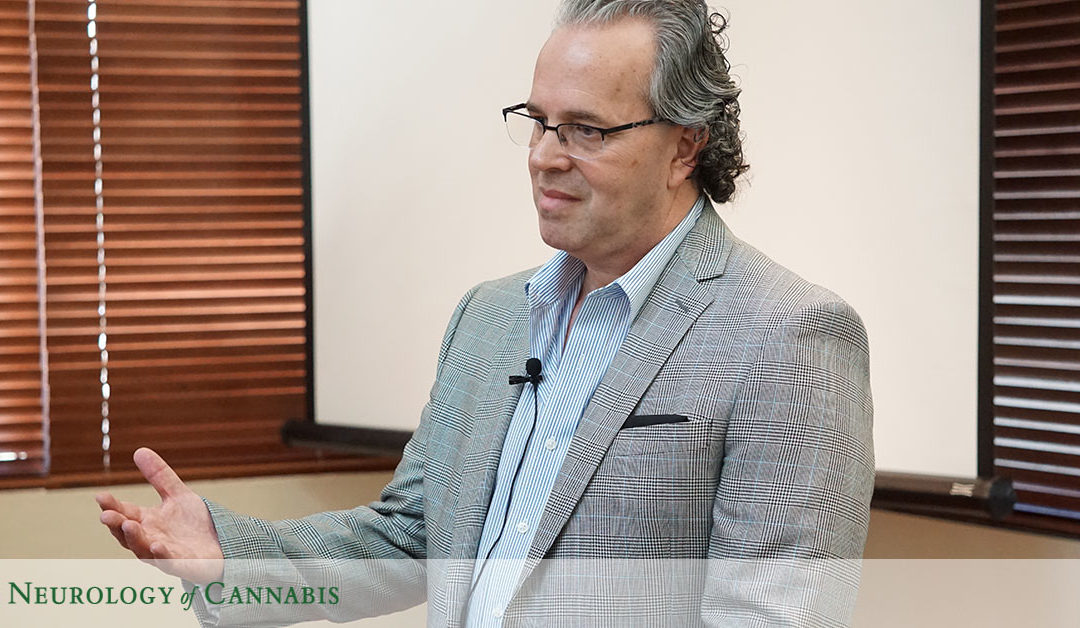Amyotrophic Lateral Sclerosis (ALS) is one of the most distressing diagnoses that a person can receive. Not only is there no known cure, but the progressive symptoms of this disease are debilitating and usually fatal within five years. Because it is a degenerative neuron disease, people living with ALS will not only lose their ability to move via paralysis, but often will eventually be unable to speak, eat, and breathe on their own. ALS attacks and kills the motor neuron cells in both the spinal cord or and the brain, prohibiting the brain from being able to control muscle movement.
Also known as Lou Gehrig’s Disease, the disease typically affects individuals between the ages of 40-70. It is a relatively rare illness compared to others, with 5,600 new cases diagnosed annually, and approximately 30,000 American citizens living with ALS on any given day.
Slurred speech, muscular spasticity (stiffness), and muscle wasting are characteristic of the disease. These symptoms cause high levels of stress, which is difficult for the patient both physically and mentally. One of the biggest frustrations among physicians, family members, and those who have ALS has been that the available pharmaceutical solutions do not provide adequate relief to the patient. Medical cannabis, however, is providing some much-needed hope as an effective symptomatic treatment and possibly as a way to slow progression of the disease.
How Medical Cannabis May Help ALS Patients
Cannabis has both neuroprotectant and antioxidant qualities.
* ALS attacks and kills motor neurons, causing the rapid paralysis and loss of function. Neuroprotectants may slow the progression of the disease by protecting motor neurons.
* Cells under metabolic severe stress die more quickly and accelerate the progression of symptoms. The antioxidant benefits of medical cannabis include a possible reduction of oxidative stress at a cellular level.
Cannabinoids are the primary pharmaceutically active chemical in the cannabis plant. Although there are many cannabinoids which have been discovered, two in particular have proven useful in ALS management:
* Delta-9 tetrahydrocannabinol (THC) is the main psychoactive component of the cannabis plant and helps minimize inflammation and pain.
* Cannabidiol, or CBD, lessens the psychoactive effects of THC while relieving muscle spasms, and offering a more potent antioxidant effect than vitamins C or E
Every patient will react to specific chemovars, or plant varieties, differently. If you are an ALS patient, and are uncomfortable with the effects of one type of plant sample, ask the dispensary for a different one. Be sure to identify the percentages of the different cannabinoids and terpenes which work best for you.
More Facts Regarding Cannabis and ALS
From a palliative care standpoint, cannabis may provide measurable relief for ALS patients. A 2013 study by Dr. Mary Abood indicated that as a result of cannabis treatment, symptomatic relief for appetite, insomnia, and spasticity in ALS patients was evident. Medical marijuana also effectively treats the depression common in terminal patients by providing a sense of overall well-being and euphoria.
Medical cannabis may function as :
* A non-opioid analgesic and anti-inflammatory solution for pain
* A muscle relaxant for spasticity
* An appetite stimulant to increase appetite and slow wasting
Cannabis also dries out the mouth to help with drooling and promotes dilation of the bronchioles to relieve labored breathing.
Dr. Gary T. Carter, Medical Director of the St. Luke’s Rehabilitation Institute in Spokane, Washington, is an expert in treating patients with neuromuscular disorders. He has specifically studied the use of cannabinoids for the treatment of ALS and other neurodegenerative diseases, and has stated that “we know more about cannabis than 95% of other medicines. Cannabis is custom made to treat ALS”.
If you or a loved one have ALS, call our office or speak to your doctor about obtaining a medical marijuana card. Medical cannabis represents a safe alternative treatment option. Dr. Daniel P. Stein is a board-certified Sarasota neurologist who has studied neuromuscular conditions such as ALS and specialized in medical cannabis for years. Call Neurology of Cannabis today for more information.

